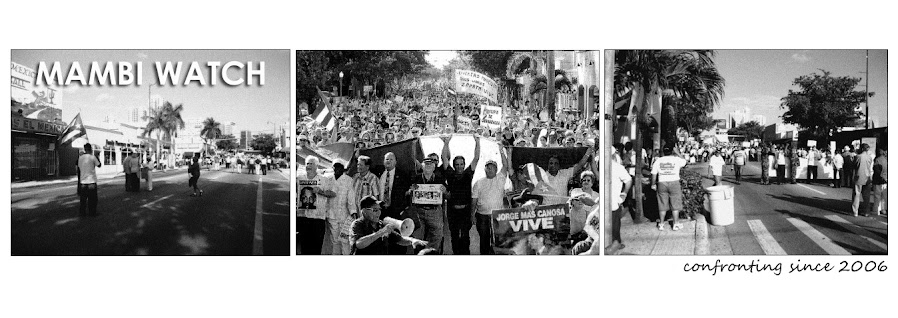 I’ll begin by stating my personal opinion about the local news coverage here in South Florida about current stories from Cuba: it is biased to the extent that local English and Spanish language television news basically say the same thing, and this also applies to local Spanish radio news.
I’ll begin by stating my personal opinion about the local news coverage here in South Florida about current stories from Cuba: it is biased to the extent that local English and Spanish language television news basically say the same thing, and this also applies to local Spanish radio news.
I’ll be more specific. I am mostly referring to the basic network news stations in South Florida and the two very popular Spanish radio news stations: Radio Mambi (WAQI) and “La Voz de Miami” (WQBA).
Now, let me give an example of my basic thesis of local news bias here in South Florida concerning news from Cuba.
On December 26, the news had come out that a doctor returned from Cuba after seeing the ailing Fidel Castro and said that Castro did not have cancer, in direct contradiction to recent public statements by US Intelligence Director John Negroponte. It was on December 13 or 15 (depending on some sources) that Negroponte told the Washington Post that Fidel Castro, according to unknown sources, was terminally ill. The Posts quotes Negroponte with one sentence saying: "Everything we see indicates it will not be much longer . . . months, not years.” Not much evidence, but some have accepted it.
So, December 26 became a very clear lesson in media bias. Virtually all local news outlets had the same story: the Spanish doctor refuted the US report, but we can’t really trust the doctor because he has close links to the Cuban government.
And that was it. Every news broadcast, TV and radio, basically had the same outline.
The question is how do I judge bias? First, we should be very suspicious about the lack of diverse coverage. In other words, we should examine how creative were the reporters in their stories and how much facts were covered.
Virtually all had the same quotes, the same video pieces and ended with discrediting, in some way, the Spanish doctor. Most of the Spanish broadcasts went a bit further with discrediting the Spanish doctor. One local Spanish radio host (Paul Crespo) went into the usual ad hominem attack against the doctor, calling him and all communists liars. The usual tirade to discredit all dissenting opinion.
In the local Spanish news, Thomas Regalado on his TV news program on Telemiami, Armando Perez Roura in his radio news program called “El Grande del Medio Dia” and Ninoska Perez Castellon also on Radio Mambi with her show “Ninoska en Mambi”, including Paul Crespo on WQBA’s show “Contrapunto”, ALL made it their priority to discredit the Spanish doctor and follow the basic news outline.
It was truly a lesson on local news bias concerning events from Cuba. Also, to my disappointment, the local English news did not do better: channel 4 news had their reporter Ileana Varela interviewing Antonio De la Cova, a local anti-Castro academic who appeared today on Radio Mambi with Armando Perez Roura, and his show “La Mesa Redonda”.
There was no diversity in coverage and no extra facts that went beyond the basic outline. This was bias.
The Miami Herald did a pretty good job in its coverage of the story, saying that the Spanish doctor was the chief surgeon from his hospital from Madrid and that he was a “credible source”. But, the Herald reporter did try to raise another issue that would be an argument against sending medical help to Cuba. Frances Robles, the reporter, quotes a woman, who has now been heralded as the hero in the picture by raising a “dilemma” of morality. The Herald writes that the Spanish doctor’s “trip is already causing controversy… where conservative politicians questioned the use of Spanish funds to pay for medicines being sent to the Cuban leader since June.” The so-called “controversy” from “conservative politicians” is coming from one person: Esperanza Aguirre.
The story is not accurate in my opinion, and once again just shows how the local news media is biased when covering events from Cuba. One just need to look at the international coverage and find some much needed objectivity.
On the same day of the Miami Herald article, the Guardian from the UK came out with a much different view on the matter of morality. It not only made a quick point that Fidel Castro is very likely recovering (yet his real condition is still top secret), the piece quotes the spokesman on foreign affairs for the conservative Popular Party in Spain saying very clearly that "[d]ictators and criminals have human rights" too. And, also that “[a]ccording to a poll by the radio station Cadena Ser, the majority of Spaniards agree.”
This story is what would’ve made local coverage that day diverse.
Yet, South Florida news came out failing.
